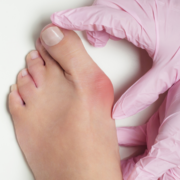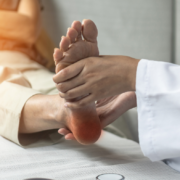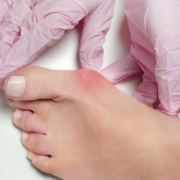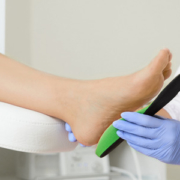Lapiplasty Repair: Your Best Bet for Beating Bunions
When you’re out on the town or working in the office, you are more likely to wear high heels, flats, or loafers. And although fashionable footwear can make you look more professional and stylish, it comes with a cost. Unfortunately for your feet, these shoes are often too narrow, too high, or restrictive. They provide little support or stability, and over time, they can produce issues with bunions.
What is a Bunion?
A bunion is a joint that has been moved or displaced. It usually occurs between the big toe and the long bone behind it. At first, your toe might look like it has a bump or a callus growing on the side of it. As time goes on, this bulge gets larger. The big toe will start to point in the opposite direction as it increases in size, which can be painful. Bunions can occur in males and females alike, but according to the American Orthopedic Foot & Ankle Society, they are ten times more likely to afflict women than men.
How do I treat a bunion that’s gotten out of control?
When bunions form, treatment isn’t always straightforward. Some methods include:
- Changing to shoes that take pressure off the big toe.
- Anti-inflammatory medication.
- Cortisone injections.
Conservative methods don’t always cut it. If they don’t succeed, surgery is sometimes the best or only option. We prefer minimally invasive, modern options whenever possible. Carrollton Foot Center, PLLC, seeks to offer the most sophisticated, comprehensive treatment available. And one of the most innovative of these is called Lapiplasty surgery. This surgery can:
- Correct deformity in three dimensions, as opposed to a 2D correction fixing just one direction.
- A small incision and specialized instruments let us hold bones in place with a titanium plate.
- Faster healing means patients can start walking in days, returning to normal activity in weeks.
If you are considering bunion surgery, contact and schedule a meeting with Dr. Nagmeh Lilly Khavari. A renowned podiatrist with extensive surgical training, Dr. Khavari served as chief resident of the Kern program at Michigan Surgical Hospital for several years. Our team is passionate about providing best-in-class treatment to patients in Denton, Dallas, and Collison counties. Give us a call at (469) 998-3668.






